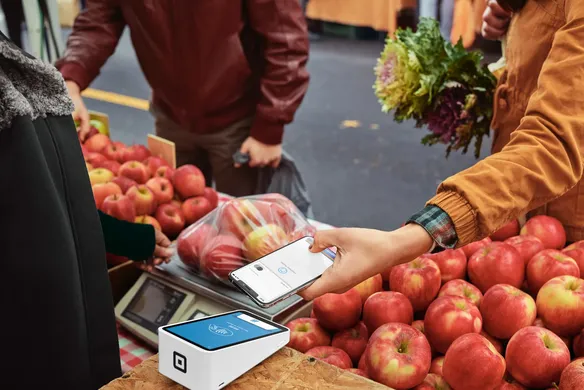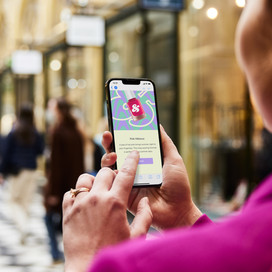Table of contents
What is brand loyalty?
Brand loyalty is associated with the level of confidence you have that a customer will choose your product simply because of your brand. When you have a high degree of brand loyalty, you can feel confident your customers will choose your products over those of your competitors, giving you a core group you can rely on to purchase from you.
The word “loyalty” itself is associated with being supportive of, or in allegiance with a particular idea. When your customers are loyal to your brand, they want to support you, and express this interest in standing by you through making a commitment to shop with you again, and again. Competitors will have a tough time stealing your customers because of their emotional connection with your brand.
Your brand carries out incredible work for your business, and yet, you might not so easily see it. This work occurs in the course of your day to day activity. Your brand enables your customers and clients to make a connection between the services or products that you offer, and distinguish them from other similar services or products on the market.
The importance of brand loyalty
When you have customers with a high degree of brand loyalty, they will shop with you again and again because they trust that your business is the best option. You give them the most value overall, which is an incredible advantage over competitors within the same market. It is a key contributor to ongoing growth, improved performance and long term business success.
Businesses with a high degree of loyalty among customers may be able to endure challenging economic times because of a passionate customer base. This is because of an established core group of supporters who come back time and time again for interactions and purchases.
How brand loyalty is lost?
Brand loyalty is a precious asset but one which can all too easily be lost. Customers and supporters might lose brand loyalty when there is:
A mismatch of values – when companies come out with big statements in support of, or against particular ideas can turn fans away if they are not of the same opinion or belief.
Evidence of a risk to safety when using the company’s products – Public health scares related to products such as food poisoning or increased risk of illness can become a PR nightmare and turn people away from a favourite brand because of fear.
Environmental concern with the brand – when companies are exposed for adopting environmentally harmful practices or inequitable acquisition of products and goods, customers can become angry and disappointed.
An incongruent celebrity endorsement – when companies use a celebrity or social media star to promote their brand, it can be a turn-off for customers who don’t like or admire that particular celebrity.
A lack of willingness to move with the times – companies need to both attend to existing supporters while attracting new ones. When your approach and attitude is stuck in the past, it can be difficult to gain new supporters. In the long run, this will result in the demise of significant support for your brand.
Brand loyalty examples
Apple
Apple is a master at creating brand loyalty. Their marketing strategies and commitment to customer service leave other companies way behind.
Apple uses sophisticated marketing strategies that connect with customers on an emotional level. They know their customers well and leverage from this familiarity by showcasing specific features and services they provide. They inspire excitement and enthusiasm by hinting at new products and capabilities. They also encourage a sense of community among their loyal customers by integrating with these customers on social media.
IKEA
Another brand that has consistently high levels of brand loyalty is IKEA.
This Swedish powerhouse company seeks to create sensory and engaging shopping experiences for customers both online and in store. They use marketing campaigns with a high degree of sentimentality, and at the same time, take advantage of tech to connect with customers who are used to planning purchases in an online environment.
IKEA also has developed an augmented reality app that enables shoppers to really see what IKEA products would look like within their own home.
How to Create Brand Loyalty
With the economy on shaky ground and unemployment growing, consumers have reined in their spending. This is putting businesses in a tough spot, but marketing experts said fostering customer loyalty can help owners and leaders weather the current storm. Customer loyalty centres on repeat business, but it actually goes much deeper.
“Would your customers inconvenience themselves?” he said. “That means, would they pay more for your product than for a similar product from another company? If so, then they’re being loyal. Would they drive further past the competitor’s store to buy the product? If so, then that’s loyalty.”
With the risk of failure knocking down business doors as a result of the pandemic, keeping customers coming back is a must for survival.
Here’s how to do it.
Build trust with existing customers by creating emotional connections
Retaining existing customers is more cost-effective than acquiring new ones — these days, there may be fewer customers to acquire anyway — and building and maintaining trust equates to customer loyalty and retention.
“Companies should take the long view of customers — [creating] customers for life — instead of a more short-term view of customers with a focus on this period’s sales,” she said.
According to the Edelman “Trust Barometer Special Report: Brand Trust in 2020,” more than half of consumers said that besides price, “whether you trust the company that owns the brand or brand that makes the product” was the most crucial factor in deciding what to purchase. And 70% said trusting a brand is more important now than in the past.
Trust and customer loyalty have been significant for the restaurant industry, among the hardest hit by the pandemic.
“Given changing demographics and the availability of convenient food choices — meal kits, grocery stores, ghost kitchens, and food trucks — the competition for guests’ dining-out business has intensified.
Companies are changing tactics, creating emotional connections with customers by promoting relevant services, like digital and easier takeout ordering. This lets customers know that business owners do care about their needs during the crisis. It can also lead to a boost in sales.
For any brand, the key to maintaining loyalty will always come down to trust and performance and the most loyal customers tend to be the most profitable ones in the long run.
Meet customers’ evolving needs with stellar customer service and online offerings
The pandemic has changed how people shop and what they buy. According to research by BDO, a large number of Australians have changed their shopping and spending habits since the pandemic hit our shores in March 2020, including an increase in online shopping, which led many to explore other brands.
How companies and brands address new customer habits and circumstances fosters loyalty, Srinivasan said. “Can your company help customers navigate their lives better in some way?” – “Can your product portfolio be modified to address customers’ immediate needs?”
Communicate your mission and how it aligns with societal issues
From the ongoing pandemic-related issues (Will the borders open? Are people getting vaccinated fast enough? Where are masks required? Can we travel overseas?) to economic uncertainty, there’s a lot going on at the moment in Australia. Businesses are sharing their stances on a range of issues and taking action, a move that’s resonating with customers.
Edelman’s brand trust survey found that more than 80% of consumers want brands to solve their and society’s problems, and 90% want brands to protect their own employees amid the pandemic, even if it means taking a financial hit.
Half of the consumers would switch to a brand that supports the causes they believe in, a sentiment that’s higher among millennials and Gen Zers.
Saladworks recently involved customers in fundraising drives for No Kid Hungry and to feed frontline healthcare workers, Mears said. The restaurants donated a portion of sales and offered free meal coupons to customers who made a donation.
“This deeper level of engagement provides a tremendous level of pride and satisfaction among our guests, team members, and the communities we serve,” he said.
Delight, don’t just satisfy
Connecting with consumers emotionally is one of the most effective ways to cultivate loyalty, Groening said. Companies can do this by creating a sense of community or belonging among their customers and making sure their product or service delights customers.
“I’m a Mac person, or I drink Coca-Cola, that sort of thing,” Groening said. “If you can somehow get to that level where it’s hard [for people] to imagine life without this brand, it makes [customers] feel emotionally attached. When you have that emotional attachment, people will stick with you.”
Customers feel more attached to companies that “delight” rather than simply satisfy, Groening said. “Delight is that surprise, that unexpected interaction, and when it’s a surprise, it breaks you out of the normal routine interaction with that company,” he said. For example, remembering customers’ names or their regular orders, offering free items, or checking in with them after a purchase.
“The brands who focus on delivering a unique and differentiated guest experience will stand out from the sea of sameness and provide reasons for their guests to come back again and again,” Mears said.
Adopt an omnichannel approach
Ensuring you communicate consistently across all channels and platforms will help customers establish and consolidate their opinion of your company.
Omnichannel marketing ensures there is consistent information, content and design across the engagement channels you use. This approach means customers have a seamless experience with your brand, whether they are shopping online or in store.
It helps you create a clear message about your brand – who you are and what you are all about.
Rewarding loyal customers
Customers that support you and stand by your brand are worth their weight in gold. So while attracting new customers is critical, so too is holding on to those committed customers you already have.
You can show your appreciation in many ways: by sending a birthday email with a special offer, or celebrating each anniversary the customer has with you.
If you want to establish a customer loyalty and rewards program, try a system like Square Loyalty which will enable you to provide a personalised appreciation experience for all of your customers.
![]()











